Although publishers often consider short fiction to be a hard sell, short stories novelettes and even novellas offer an exciting space for writers to experiment with form, sketch out new ideas, explore particular themes, and take narrative risks that aren’t usually seen in long-form projects. Plenty of writers begin their careers by publishing short fiction in literary and genre magazines—a mastery of the form may indicate that the author is finally ready to embark on a novel or a book-length work. Moreover, the Anglophone SFF market owes a lot to genre magazines and pulp anthologies that continue to popularize the form, with several of their awards (be it the Hugo, Nebula or the Locus) having categories dedicated to honoring achievements in short fiction.
Short story collections and anthologies are a great way to get acquainted with a writer’s work, discover new authors, or explore a bunch of disparate ideas in a single volume. Unlike novels that demand a sustained attention span, you can dip in and out of the stories as you please—if you don’t vibe with a particular tale, you can just skip to the next one. Speculative collections, in particular, often address real-world concerns through the lens of magic realism, horror, folklore, sci-fi or fantasy, blending genres with ease and offering a mix of everything.
Whether you’re a seasoned short-story reader or on the lookout for exciting new voices in the field, these speculative-tinged collections deserve a space on your bookshelf!
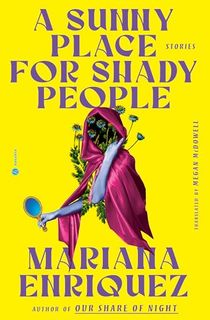
A Sunny Place for Shady People: Stories
Mariana Enriquez is probably one of the finest dark fantasy/horror writers of the current generation, and her third collection of short fiction, A Sunny Place for Shady People (translated by Megan McDowell) is probably her best yet. From real-life accidents inspired by Korean urban legends (such as the Elisa Lam case) to Argentinean socio-politics, her stories straddle a variety of topics but are united by strains of body horror and disquiet. Many of her tales in this volume explore in detail the horrors of inhabiting female-coded bodies under unjust patriarchal systems, making for a haunting and relevant read.
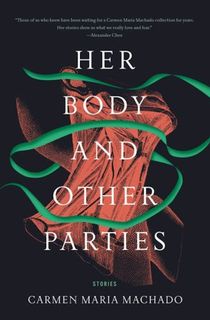
Her Body and Other Parties
Machado’s debut story collection provocatively explores the travails of womanhood, drawing upon fairytales, a Law & Order episode and ghostly tales—and retelling them with a Gothic twist. From the darkly fantastic “Husband Stitch” to the bleak page-turner “Real Women Have Bodies,” her stories brim with electricity and eroticism, never shying away from making the reader uncomfortable.
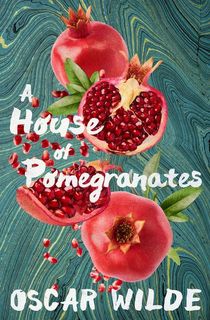
A House of Pomegranates
If you’re in the mood for fairytales and you’re looking for something traditional but not the usual suspects like the Brothers Grimms or Hans Christian Andersen, give A House of Pomegranates by Oscar Wilde a try. Wilde’s prose is deliciously rich, filled with allusions to Greek myths and Christian theology and simmering with a delicate sensuality and beauty.

Cursed Bunny
Translated by Anton Hur, Bora Chung’s collection deftly uses the speculative mode to address real-world inequalities, Most of the tales are darkly stunning, including the opener “Head” that will make you terrified of toilet seats, the titular story about ancestral curses, and “The Embodiment,” a darkly comic tale wherein a single woman’s consumption of birth control pills leads her to getting mysteriously pregnant, propelling her in a fruitless search for a husband to raise the baby with.
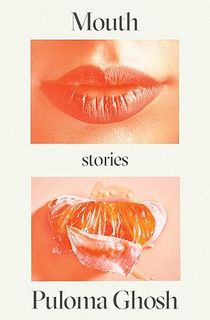
Mouth: Stories
One of my favorite finds of last year, Puloma Ghosh’s debut collection of short stories is darkly captivating, sensuous, heart-breaking and at times, horrific. Many of the stories deal with girlhood longings, casual dating, relationship drama, campus parties and grief for things left behind. From “Dessication” (where a vampire skater girl aids another young woman in her sexual awakening in a town where all the men explicably disappear) to “K” (which is about how the people who leave become stories in our hearts), the tales are all laced with a thin edge of mystery and magic. If you love atmospheric prose, you’ll adore this poignant and astutely-written collection.
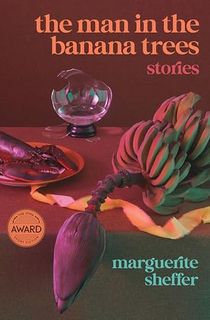
The Man in the Banana Trees
Marguerite Sheffer’s debut collection, The Man in the Banana Trees was the winner of the Iowa Short Fiction Award, and offers a mix of speculative flash fiction and short tales with a lovely, literary slant. Every tale in here is a gem (though “The Observer’s Cage” is a personal favorite), with vibrant characters and perspectives, conjuring vivid worlds with just a few details. Her prose is elegant and economical with the stories gently creeping up on you—a curiosity cabinet of subtle wonders.
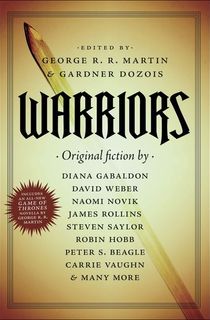
Warriors
Another ground-breaking anthology by none other than George R.R. Martin, Warriors (as you may have guessed from the title) collects stories about heroes, fighters and soldiers—the larger-than-life protagonists that become the stuff of myths and legends. Each tale in this volume tells the story of a warrior—some stories are funny or sad, but they’re sure to stay with you long after you’ve turned the last page.
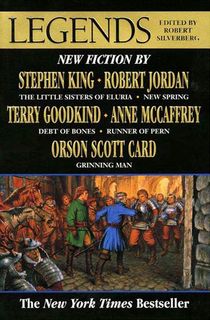
Legends
If you’re looking for a short story anthology that will introduce you to the genre giants, grab a copy of Legends by Robert Silverberg. The exciting line-up of authors include Stephen King, Terry Pratchett, Ursula K. Le Guinn, Robert Jordan, Anne McCaffrey, George R.R. Martin and more. Many of these writers return to the detailed fictional settlements of their novels—with characters both familiar and new.
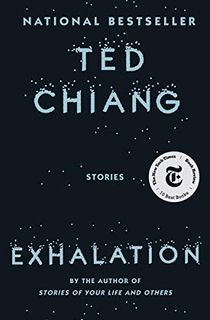
Exhalation: Stories
Finally, a listicle about short story recommendations isn’t complete without a collection by Ted Chiang. Exhalation is Chiang’s second collection, after Stories of Your Life and Others (2002) and is just as brilliant—with nine powerfully-written tales. “The Merchant and the Alchemist's Gate” is a carefully concocted story involving time travel, while the “The Lifecycle of Software Objects” is a deep dive into the digital lives of Neopets-like entities, asking important questions about sexuality, consent, bodily autonomy and more. Each of Chiang’s stories are like thought experiments, embracing the imaginative possibilities of the genre.





